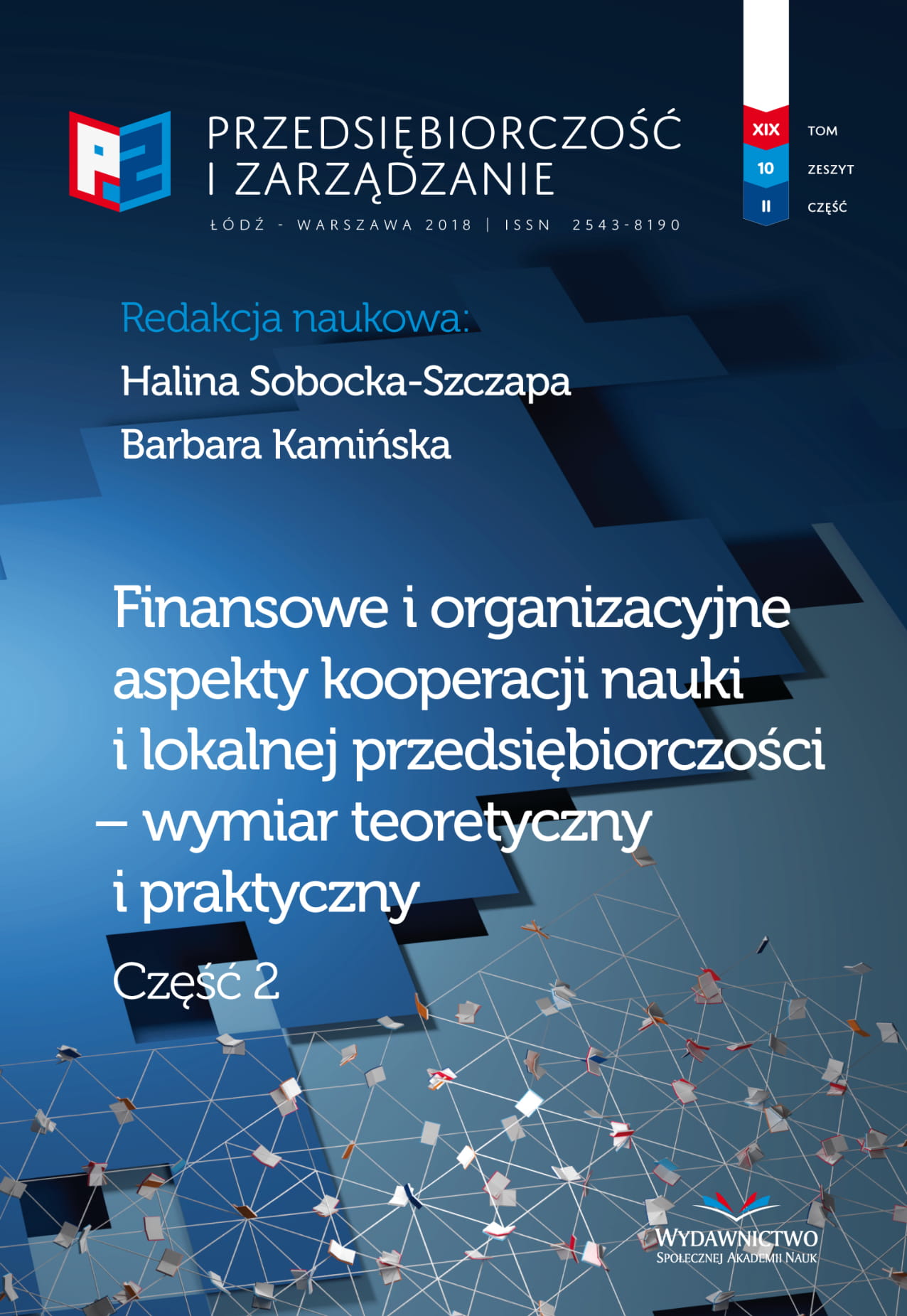Rozwój przedsiębiorstw a nowe modele
biznesowe oparte na technologiach
informacyjno-komunikacyjnych
Business Development and New Business Models Based
on Information and Communication Technologies
Author(s): Nina StępnickaSubject(s): Economy, Business Economy / Management, Marketing / Advertising, ICT Information and Communications Technologies, Business Ethics
Published by: Społeczna Akademia Nauk
Keywords: e-business model; enterprise; business; airbnbization; facebookization; uberization
Summary/Abstract: Companies in the 21st century face a choice of different business models, combining both, the assumptions of the traditional operating conditions, and modern technologies like the Internet and other web tools. The growing popularity of such applications and Web services,as Uber, Airbnb or YouTube made it possible that the e-business models implemented by the aforementioned services are used by other traditional entities (the so-called brick and mortar),as well as companies and services using various Internet tools (so-called click and mortar) and also the so-called ”pure” Internet entities (pure play model). The aim of the work is the characteristics of uberization and airbnbization, which have an impact on the development of enterprises including the local ones and are carried out using new communication and information technologies. The analyzed trends also take the form of business and e-business models for different companiesas. As a result, uberization and airbnbization are one of many trends that have emerged in the economy. They may be some kind of tools in business, concerning for example work or employment. They may also concern the business itself and then require a modern technology, a change in the business model of the enterprise, but also an exploration of the structure of the market, information about customers’ preferences and their attitude to the relationship company-the third parties’ consumer, the so called intermediary platforms.
Journal: Przedsiębiorczość i Zarządzanie
- Issue Year: 19/2018
- Issue No: 10.2
- Page Range: 291-300
- Page Count: 10
- Language: Polish

